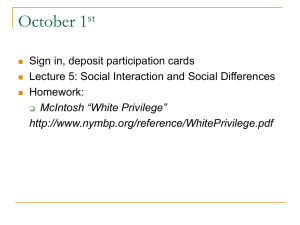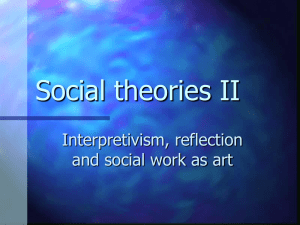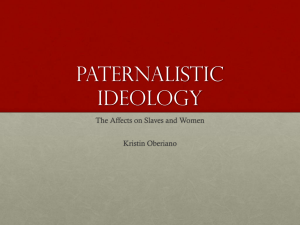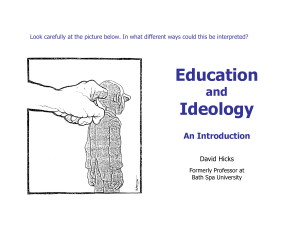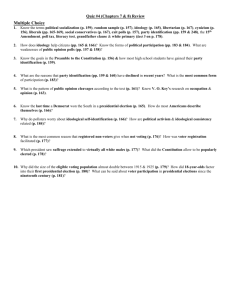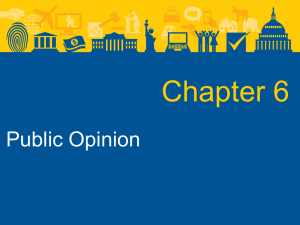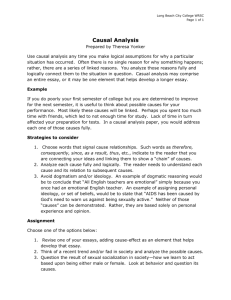Discussion Leader Summary 2
advertisement
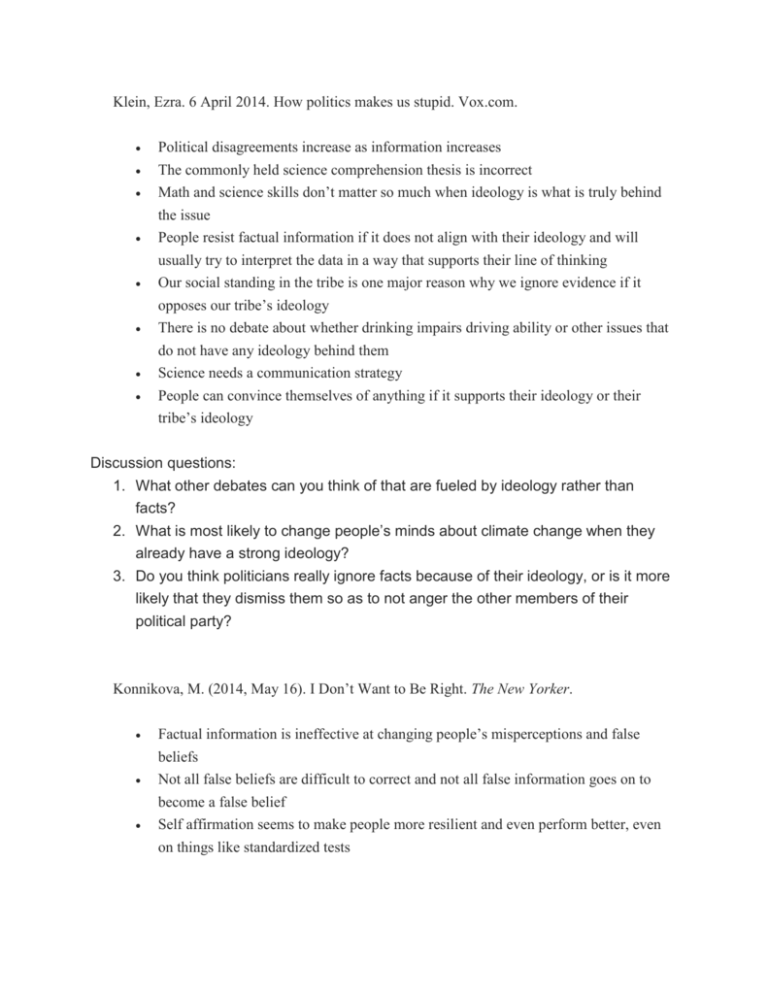
Klein, Ezra. 6 April 2014. How politics makes us stupid. Vox.com. Political disagreements increase as information increases The commonly held science comprehension thesis is incorrect Math and science skills don’t matter so much when ideology is what is truly behind the issue People resist factual information if it does not align with their ideology and will usually try to interpret the data in a way that supports their line of thinking Our social standing in the tribe is one major reason why we ignore evidence if it opposes our tribe’s ideology There is no debate about whether drinking impairs driving ability or other issues that do not have any ideology behind them Science needs a communication strategy People can convince themselves of anything if it supports their ideology or their tribe’s ideology Discussion questions: 1. What other debates can you think of that are fueled by ideology rather than facts? 2. What is most likely to change people’s minds about climate change when they already have a strong ideology? 3. Do you think politicians really ignore facts because of their ideology, or is it more likely that they dismiss them so as to not anger the other members of their political party? Konnikova, M. (2014, May 16). I Don’t Want to Be Right. The New Yorker. Factual information is ineffective at changing people’s misperceptions and false beliefs Not all false beliefs are difficult to correct and not all false information goes on to become a false belief Self affirmation seems to make people more resilient and even perform better, even on things like standardized tests When given factual information about vaccines, parents who were vaccine-doubters to begin with actually ended up with even more reservations about giving their child vaccines. The author calls this the “backfire effect” The campaign against smoking is one of the biggest public fact-checking campaigns in history Article claims that vaccinations aren’t inherently linked to ideology Discussion questions: 1. Do you agree with the above claim – or could vaccines in fact be related to 2. ideology if people were not trusting of anything produced by Big Pharma, for instance? Do you feel that recalling a time you felt good about yourself would make you more open minded during political disagreements? Kloor, K. (2014, July 18). RFK Jr’s belief in the autism-vaccination connection, and its political peril. The Washington Post Sunday Magazine. Robert Kennedy Jr. claims that there is a harmful neurotoxin in vaccines and it needs to be removed because it can harm human health The CDC found no evidence to support that Kennedy is correct, but urged vaccine makes to remove the potentially toxic ingredient, just in case Many people saw this as the CDC admitting it is harmful RFK lost many of his close friends and allies who told him to drop the vaccine conspiracy ideas RFK ignored his friend’s advice and continued to promulgate his message RFK claims no study shows thimerosal is safe, except the ones funded by the vaccine makers, and the CDC… Nobody listens to RFK’s evidence and tells him to drop it before he wrecks his career RFK is confident the truth will prevail and one day Americans will be convinced that he is correct Question: Since it is possible to prove a substance’s harm, but very difficult to prove empirically that something is not harmful or toxic, could RFK possibly be correct? If so, hypothetically speaking, do you feel that the enormous benefits of the vaccine for the majority of people (herd immunity, preventing disease, etc.) outweighs a (potential) risk of a small percentage of children getting neurotoxic effects from the vaccine’s preservative? Could the vaccine debate actually be more about societal ethics and individual morality than we currently are aware of? Is this a “for the greater good” debate?
